Understanding Whole Home Generators
Whole home generators keep your life moving even when the power takes a hike. They jump in, like a trusty sidekick, making sure your power-hungry gadgets and crucial systems don’t skip a beat during those annoying outages.
Importance of Whole Home Generators
These generators are a game-changer for keeping your home snug and secure when the lights go out. Whether it’s holding the fort with the lights, making sure the heat or AC is still kicking, or keeping medical gear online, they bring a comforting sense of continuity. In places like Houston, TX, where the weather can be wild and unpredictable, a solid generator isn’t just nice to have—it’s a must for dodging the chaos and hazards of long blackouts.
Why Proper Sizing is Crucial
Picking the right sized generator is a bit like Goldilocks looking for the perfect porridge—not too small, not too big, but just right. If it’s too tiny, it might end up wheezing under the pressure and could even mess up your stuff. Too big, and you’re just burning cash and fuel for no reason. Getting it spot-on involves jotting down what your home really eats up in terms of power—like figuring how many watts each of your beloved appliances need to kick off and keep running. If you’re scratching your head wondering how to figure this all out, our handy generator sizing calculator or whole house generator wattage calculator can act as your guide.
Nailing the perfect size not only makes your generator hum smoothly but keeps it happy and healthy for years, sipping fuel like a Prius. Once you grasp why sizing really matters, you’ll score a generator that ticks all your boxes without breaking a sweat.
Check out our step-by-step guide on how to calculate generator size for home for even more help.
Stick to these pointers and your setup will be smooth sailing when the power cuts out. For extra tips, peek at our residential generator sizing guide to make sure your next power pick fits your home just right.
Factors for Sizing a Whole Home Generator
Choosing the right generator isn’t just about making sure the lights stay on during the next big storm; it’s about finding one that fits just right, like Cinderella’s slipper. To get it spot on, think about your house size, how much juice everything needs, and what kind of fuel you’re comfortable with.
Home Size and Layout
Your house’s square footage and the way it’s laid out are big pieces of the puzzle. Bigger homes tend to suck up more power, and your house’s unique setup might mean some gadgets and areas need more priority.
| Home Size (sq ft) | Estimated Power Needs (kW) |
|---|---|
| 1,000 – 1,500 | 14 – 20 |
| 1,500 – 2,500 | 20 – 24 |
| 2,500 – 3,500 | 24 – 30 |
| 3,500+ | 30+ |
If your house stretches over several floors or has sprawling outdoor spaces, you might need extra kick for outdoor lights and heaters. Use our nifty generator sizing calculator to get a clearer picture.
Electrical Load
This bit is about figuring out the total power all your gadgets and appliances need. You’ll want to look at both running watts (how much power they use while operating) and starting watts (the power needed to get motor-driven appliances, like fridges, up and running).
| Appliance | Running Watts | Starting Watts |
|---|---|---|
| Refrigerator | 800 | 1,200 |
| Central AC (24,000 BTU) | 3,800 | 4,500 |
| Heater | 1,500 | 1,500 |
| Washing Machine | 1,150 | 2,300 |
Don’t sweat the numbers too much—let our whole house generator wattage calculator do the heavy lifting.
Fuel Source Considerations
Deciding on the fuel type is like picking between coffee, tea, or soda—each has its perks and quirks. The fuel you choose can change how much you spend on running your generator, how often it’s maintained, and how efficiently it runs.
| Fuel Type | Pros | Cons |
|---|---|---|
| Natural Gas | Always available, runs clean | Might not work during gas line issues |
| Propane | Doesn’t spoil, burns like a dream | Needs tank storage |
| Diesel | Packs a punch, easy to find | Loud, can be dirty |
Think about what fits best with your home’s needs. For a more in-depth dive, check out our piece on how to size a backup generator for home.
Putting all these puzzle pieces together will make sure you don’t end up in the dark next time you really need power. For the nitty-gritty on wattage calculations, our guide on calculating generator size for home has everything you need.
Calculating Generator Size
Picking the right-sized generator for your whole house is like finding the right puzzle piece. It’s gotta fit just right to keep everything running smoothly when the power decides to bail on you. Getting this right means figuring out how much juice your place needs—think of it as totaling up the watts, the steady kind and the ‘let’s get this thing moving’ starting ones.
Calculating Total Wattage Needs
Step one is figuring out how much power your home craves. Start by listing out all the must-have gizmos and gadgets along with their watt gobbling habits.
Common Household Appliances and Their Wattage:
| Appliance | Running Watts | Starting Watts |
|---|---|---|
| Refrigerator | 700 | 2200 |
| Air Conditioner (3 ton) | 3500 | 7200 |
| Electric Water Heater | 4500 | 0 |
| Microwave Oven | 1000 | 0 |
| Washing Machine | 1200 | 2400 |
| Television | 200 | 0 |
| Lights (10 Bulbs) | 600 | 0 |
Round up all the steady running watts for the stuff that’s gonna be buzzing at the same time. Check out our whole house generator wattage calculator for some extra hand-holding.
Accounting for Starting Watts vs Running Watts
Starting watts are like the first push you need to get motor-driven stuff going. Your generator’s gotta be ready to handle that initial ‘oomph’ to do its job right.
Example: Wattage Calculation
| Appliance | Running Watts | Starting Watts |
|---|---|---|
| Refrigerator | 700 | 2200 |
| Air Conditioner (3 ton) | 3500 | 7200 |
| Electric Water Heater | 4500 | 0 |
| TOTAL | 8700 | 9400 |
Here, your house settles in at 8700 running watts, but don’t forget about those 9400 watts needed when things start spinning up.
For nail-biting accuracy, try a generator sizing calculator and take a peek at our standby generator sizing chart.
Making sure you count both running and starting watts means your new power pal can keep everything from your fridge to your A/C humming along happily. Want to dig deeper? Our residential generator sizing guide is just the ticket.
Sizing Guide for Success
Getting the right generator size can make the difference between sitting comfortably at home during a power outage or fumbling to keep things running. To make picking a generator as easy as pie, we’ve broken them down into bite-sized categories: small, medium, and large. Whether you’re plugging in a fridge or lighting up the whole house, we’ve got you covered.
Generators by Size Class:
Generators come in all shapes and sizes. To keep it simple, let’s focus on three big ones: small, medium, and—you guessed it—large. Each comes with its bag of tricks, fit for different homes and power cravings.
| Size Class | Wattage Range (Watts) | Perfect For | Things to Think About |
|---|---|---|---|
| Small | 7,000 – 9,000 | Basics like fridges and lights | Runs essentials for short times but not much more |
| Medium | 10,000 – 15,000 | Most stuff in regular homes | Sufficient to keep everyday bits and light air-con going |
| Large | 16,000+ | Big homes needing everything on | Can handle the whole shebang, even energy-hogs |
Getting the watts right takes the hassle out of keeping your household happy when the power’s gone south.
Small Generators
The little guys hum along in the 7,000 to 9,000-watt lane. Ideal for those who just want to make sure the fridge stays cold and the lights stay on. Especially fine-tuned for smaller nests or quick blackout cover-ups.
Medium Generators
Middle-of-the-road generators handle between 10,000 and 15,000 watts. This one’s got the juice for typical homes where lots of gadgets need a zap. Further, these champs can even tackle a bit of HVAC action. Cost-effective and dependable—no wonder they’re a household name!
Large Generators
The big leagues start at 16,000 watts and keep going. These powerhouses are bred for spacious homes that need every bulb and gizmo accounted for. Whether it’s arctic air conditioning or massive energy guzzlers, they’ve got you sorted when push comes to shove.
To nail down your exact generator match, take a whirl at our generator sizing calculator. For those curious about the nitty-gritty, our whole house generator wattage calculator can spell it all out for you.
Choosing the right generator size means you’re prepped for anything, keeping the calm when the lights go out. For nuts-and-bolts advice, peek at our home generator sizing tips and residential standby generator sizing articles. Understanding these tips ensures a smooth generator fit and a glowing home, no matter what.
Installation and Maintenance Tips
Why You Need A Pro To Install
Getting a whole home generator set up right isn’t just a smart move—it’s a must. Handing the job to the pros guarantees a smooth hookup with your home’s electrics. These experts figure out what you need and get all the wires and switches in the right spots, keeping pesky problems like overloads or short circuits at bay. Check out our residential generator sizing guide for a head start on a problem-free setup.
How To Keep Your Generator Running Like New
Want your generator ready and raring to go? Stick to a regular check-up routine. You’ve got to keep an eye on the oil, give the air filter a once-over, and don’t forget to peek at the battery. A little tinkering now and then will make sure it kicks in when things go sideways.
| What to Do | How Often |
|---|---|
| Peek at the Oil | Every 50 Hours |
| Air Filter Check | Once a Month |
| Battery Check-up | Once a Year |
| Test the System | Monthly |
Routine TLC makes your generator last longer and is the friend you can count on when the power’s out. For step-by-step pointers, dive into our home generator sizing tips.
Nailing Generator Size
You’d hate to skimp on size and feel the pinch later on. A common screw-up is guessing low on wattage. Learn the difference between starting and running watts to size things just right. Our whole house generator wattage calculator can be your go-to for getting this right.
And don’t just think about today’s needs. Tomorrow’s gadgets need juice too, so factor in more as you go. Pick a fuel that your generator loves and won’t run out on you in a pinch. Swing by our whole house standby generator sizing guide to get the scoop on all these.
By scoring a pro for setup, sticking to maintenance, and dodging size mix-ups, your generator will be your home’s best buddy, always ready to roll. More info to pin down that perfect generator size is just a click away at our generator sizing calculator.

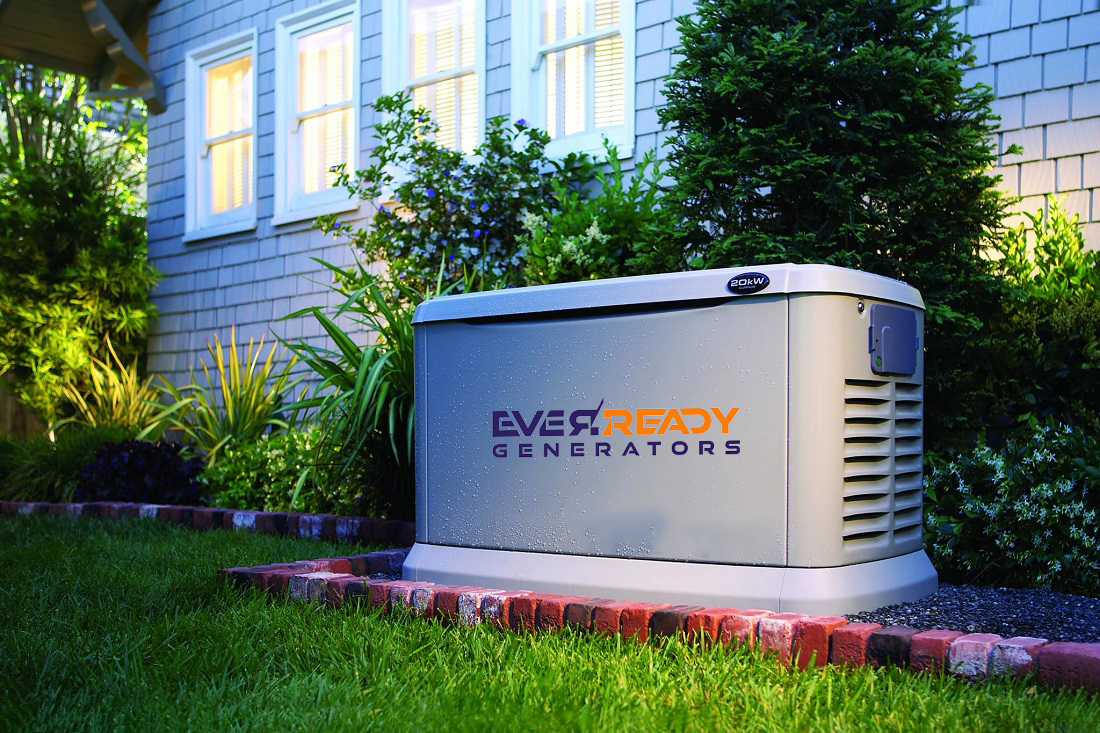
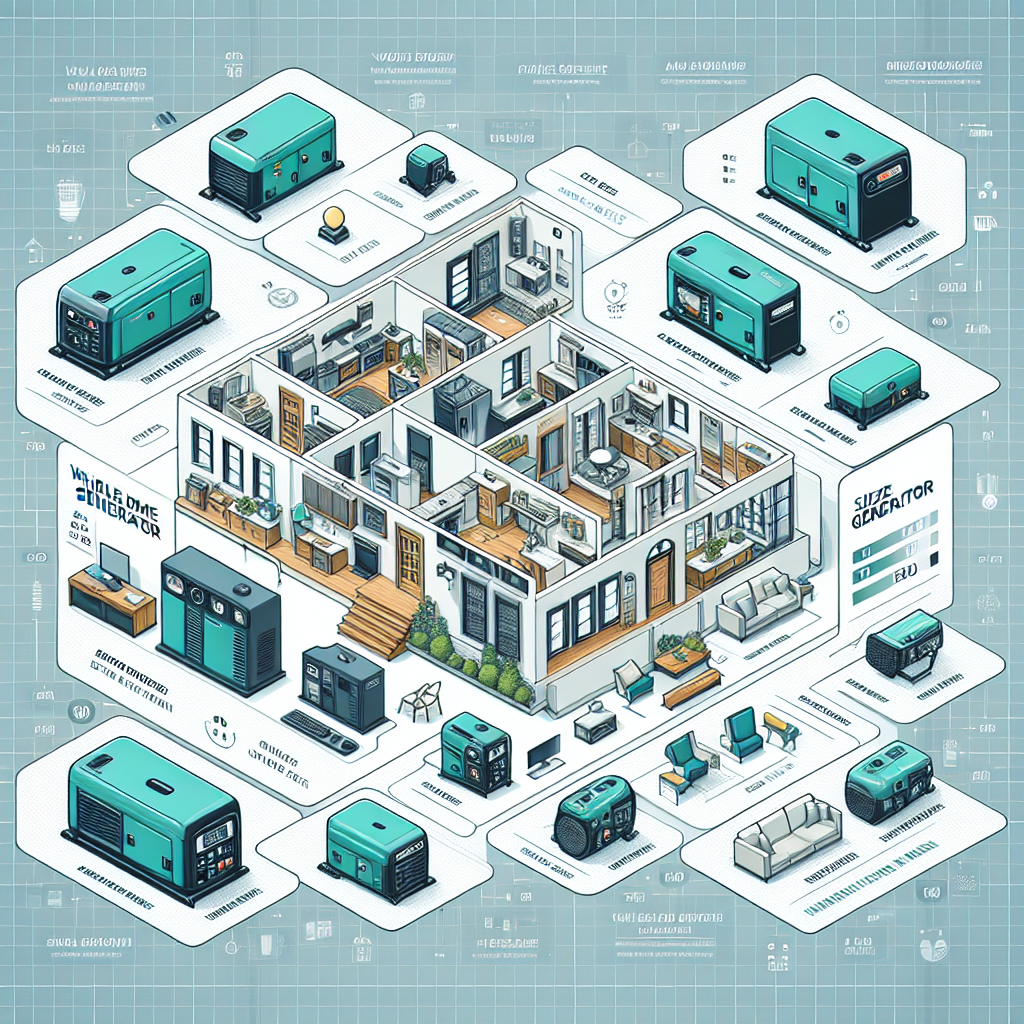
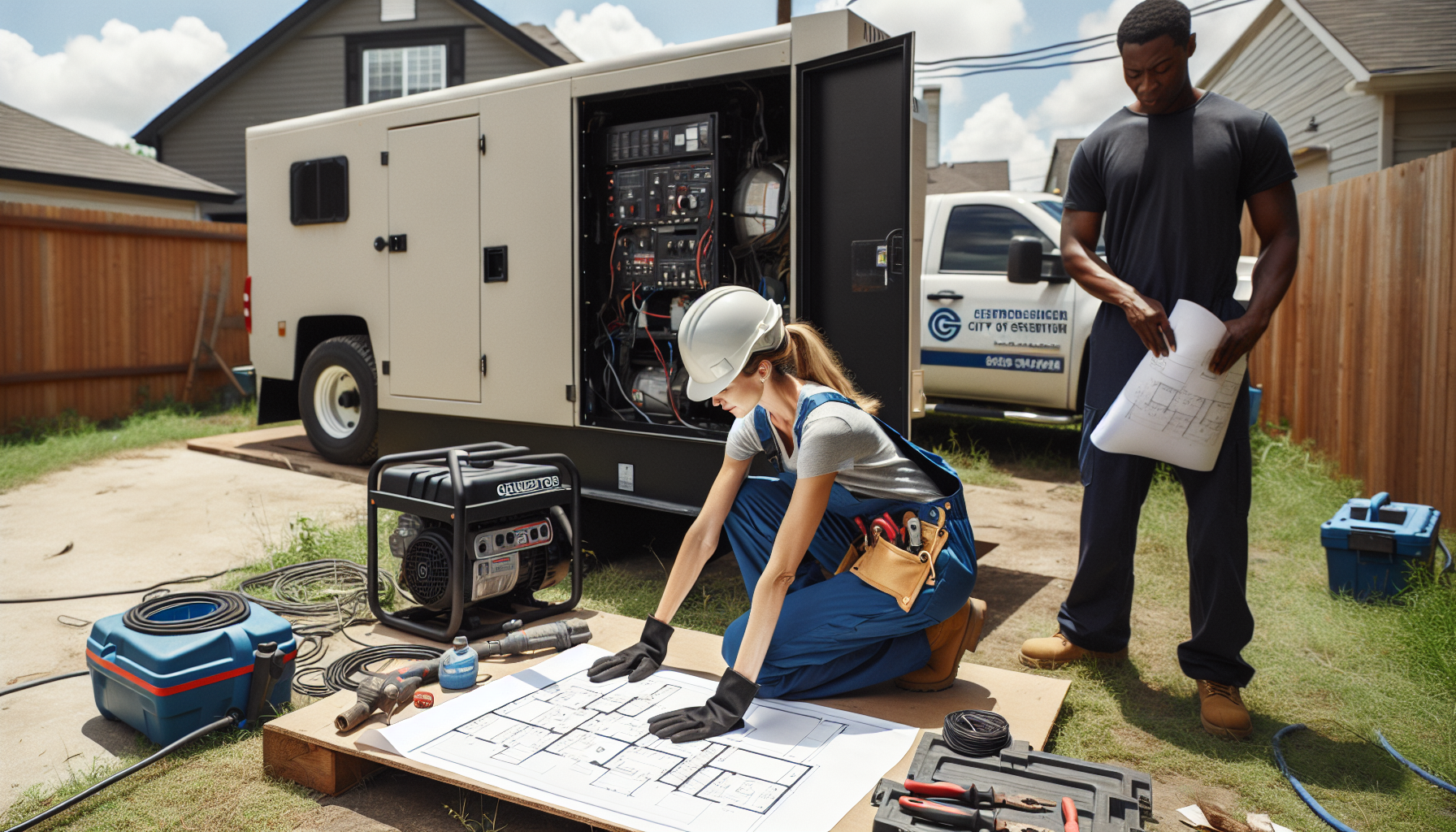
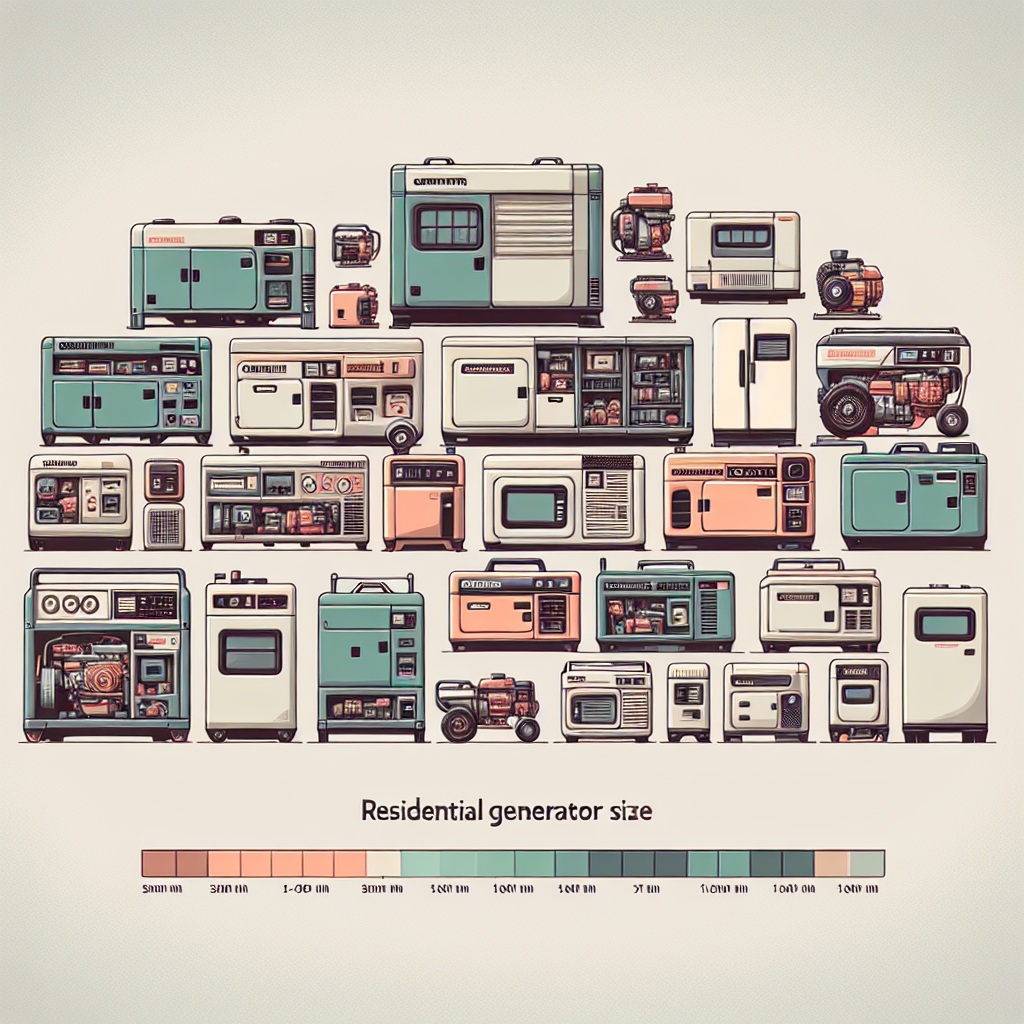
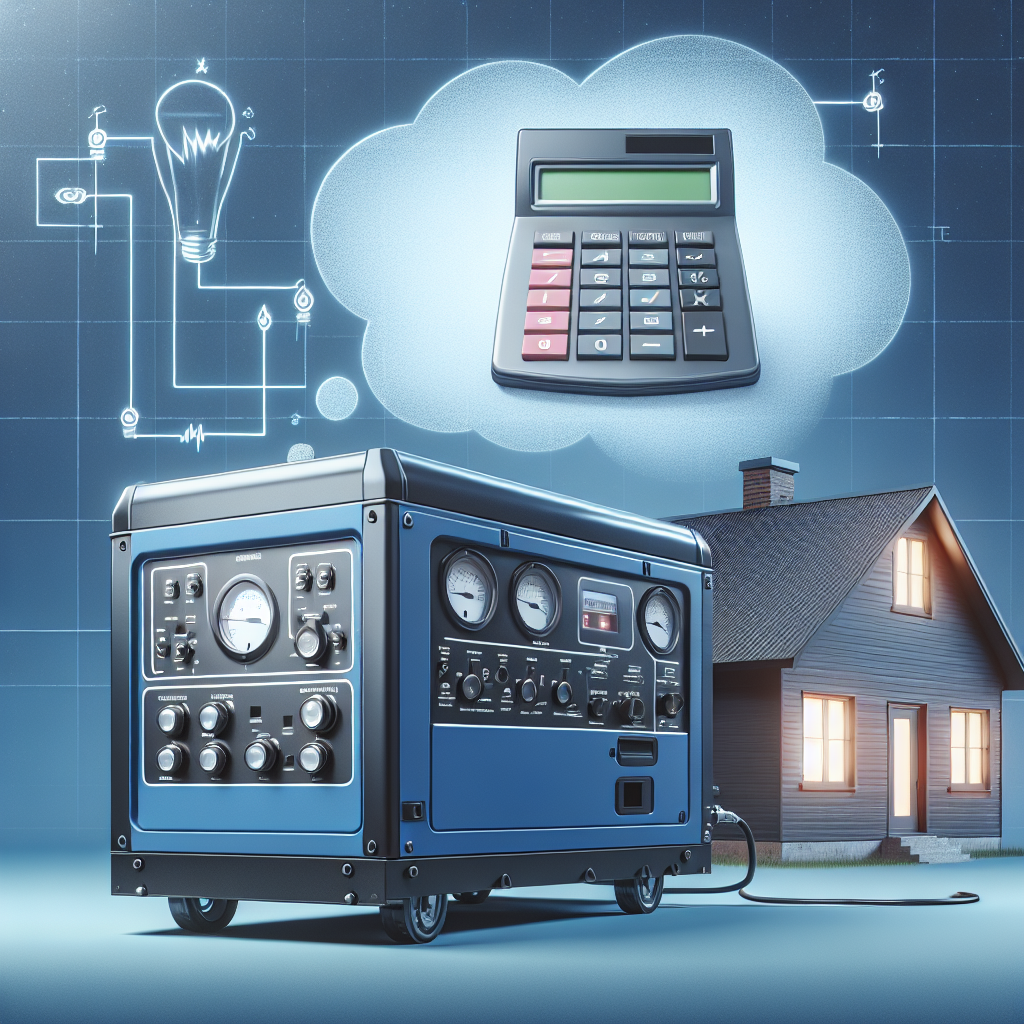
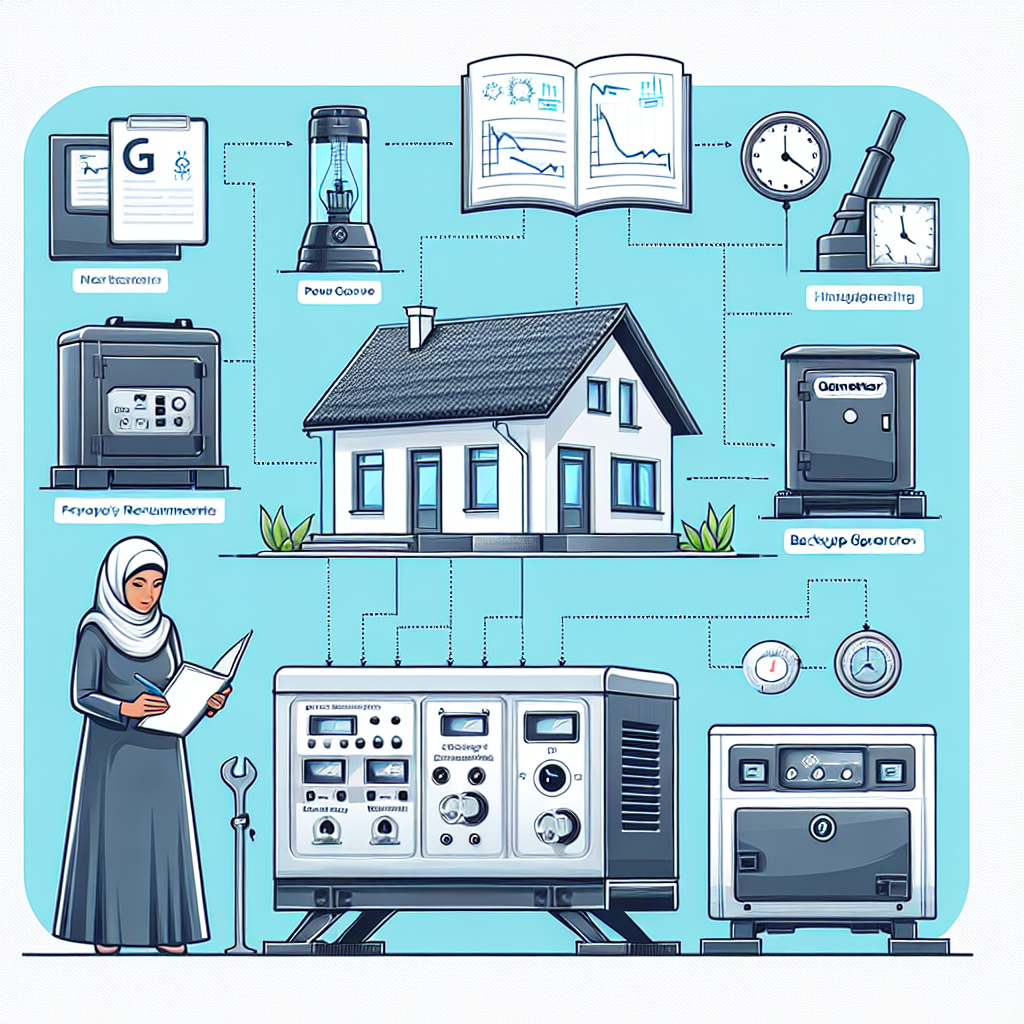
Leave a Reply